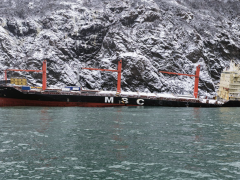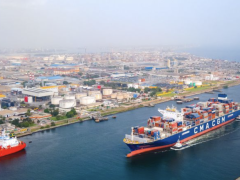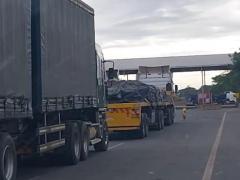Despite ballooning government debt, there are sufficient foreign exchange reserves to cover imports. According to the South African Reserve Bank (SARB), national government’s gross loan debt increased by 8.5% year-on- year to R5 817 billion (78.1% of GDP) as at June 30, 2025. In contrast, gross foreign exchange reserves reached a record high of $70.42bn in August, dropping slightly to $69.74bn in September. Contributing to the drop was a decrease in foreign currency reserves ($47.795bn compared to $50.6bn in August). The Reserve Bank is using customs and foreign exchange controls to support local industry and the reserves. South Africa stopped de minimis concessions for Shein and Temu in September 2024, replacing the previous tax- exempt R500 threshold with standard import duties and a 15% Value-Added Tax (VAT) on all parcels, including low-value clothing items. This is to protect local manufacturers from subsidised and cut-price imports of clothing, accessories and other items, mainly from China. In mid-2024, the South African Express Parcel Association (Saepa) stated that approximately 40% of the estimated 100 000 packages arriving in the country daily originated from Temu and Shein. According to Nedbank, the de minimis rule allowed parcels containing clothing with a value of less than R500 through customs with a payment of only 20% import duty and no VAT. Local retailers pay 45% customs duty as well as 15% VAT on all imported clothes. There has been a noticeable impact on volumes, says Simon Anderssen of Slant Research, with Shein particularly affected due to its focus on apparel. Another change has been the December 2023 introduction of the Advance Payment Notice (APN) process, whereby advance foreign exchange payments above R50 000 must obtain a unique APN reference from Sars via the eFiling platform before initiating payment. This process is specifically relevant to Balance of Payment category 101, according to C2M auditors. Banks are obligated to record, validate and report the APN provided by a trader/ importer to the SARB when such payment is concluded. The mandatory process is designed to combat illicit flows and customs undervaluation, according to Sars. Another major change came in March, when it became mandatory for supplier invoices and customs declarations to include incoterm and payment terms as compulsory fields, with clearances for multiple products being entered individually instead of as bulk entries. Further obligatory fields needed include rate of exchange, shipment details, dutiable charges, discounts, and commercial invoice descriptions at line-item level. All supporting and customs documents must match Sars records and be retained for regular audits. ER
SA has forex to cover import payments
Comments | 0












